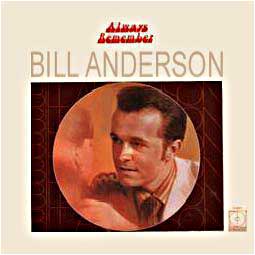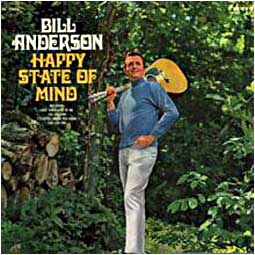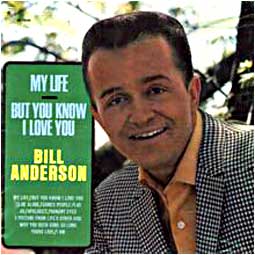


BILL ANDERSON
One of the most successful songwriters in country music history, Bill Anderson was also a hugely popular singer in his own right, earning the nickname "Whispering Bill" for his gentle vocal style and occasional spoken narrations. Anderson was born in Columbia, SC, in 1937 and grew up mostly in Atlanta. He studied journalism at the University of Georgia and worked his way through school as a radio DJ, during which time he first tried his hand at songwriting and singing. His composition "City Lights," written when he was just 19 years old, was recorded by Ray Price in 1958 and went to the top of the country charts.
Anderson took full advantage of his big break, moving to Nashville and landing a record contract of his own with Decca. His first chart hit came with 1959's "That's What It's Like to Be Lonesome," and he had his first Top Ten entry with 1960's "Tip of My Fingers." Early hits like "Po' Folks" (1961), "Mama Sang a Song" (his first number one, from 1962), and "8 X 10" (number two, 1963) still remain among his best-known. Anderson recorded his biggest hit and signature song, the partly spoken ballad "Still," in 1963, and it not only topped the country charts, but crossed over to the pop Top Ten as well. Anderson remained a regular visitor to the country Top Ten through the late '70s, and reached the Top Five a total of 19 times through 1978.
Among the highlights were the number ones "I Get the Fever" (1966), "For Loving You" (a 1967 duet with regular partner Jan Howard), "My Life (Throw It Away if I Want To)" (1969), "World of Make Believe" (1974), and "Sometimes" (1976). He had also penned numerous hits for other artists, including Connie Smith, Hank Locklin, Porter Wagoner, Jim Reeves, and Faron Young, among many others.


